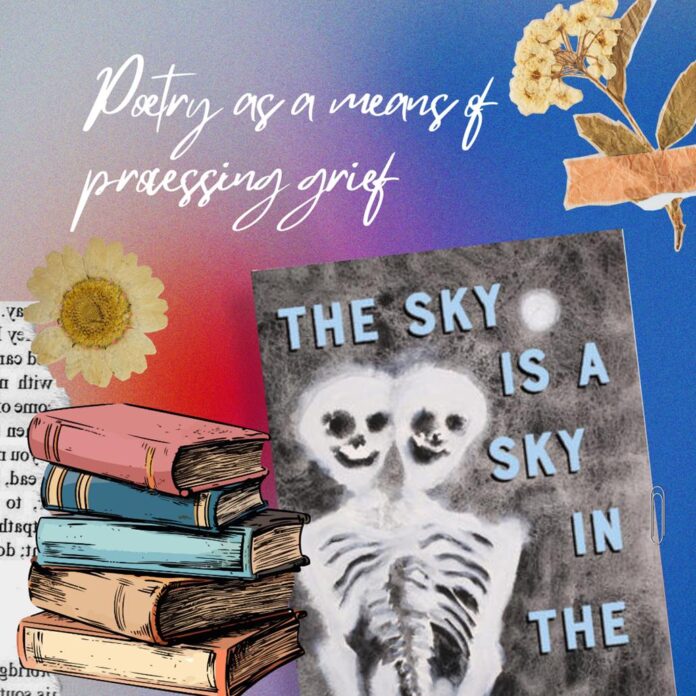I can only describe Stuart Ross’ newest poetry collection, The Sky is a Sky in the Sky (2024), as beautiful and bizarre. The Toronto based poet has been the recipient of multiple prestigious awards, including the 2023 Trillium Book award for his personal essay The Book of Grief and Hamburgers (2022) and the 2019 Harbourfront Festival Prize. Ross is also the co-founder of Meet the Presses Collective, an organization which curates literary events for independent publishers in the Greater Toronto Area. Not new to the Canadian literary sphere, Ross’ work manages to bring something novel every time.
The Sky is a Sky in the Sky takes us through Ross’ journey of grief. Both fresh and persistent, his visceral poems are experimental; throwing the rules of literature out the window. At times I wasn’t quite sure what I was reading, or what form the poem was taking until later, when a powerhouse of a line hit me — or days after reading when I finally figured out the double meaning of that seemingly simple word.
In poems like “A Toy Bird,” “Math & Science,” and “Willow Street,” Ross highlights the importance of community. Each of these poems are either in collaboration with, or dedicated to, other writers. While this could have been a fun creative consorting that Ross chose to include, it also serves as a reminder that we don’t grieve alone.
To me, “Self-Portrait” is one of Ross’ experiments gone right. The poem consists of sixteen ideas — words, feelings, and things that “make up” Ross. After each line is a sentence, an abstract idea that creates a picture of who he is — including his dry sense of humor — proving that you don’t need flowery language to explore heavy feelings. “Valediction” shares a similar sentiment with a total of six lines. Within those lines, Ross questions what it means to truly know someone, and what our lasting mark on the world is. The image and sentiment is strong, without the need to over explain.
Proving his point again, he uses three words or less per line in “List&ning.” Within this poem, Ross uses irony in the personification of inanimate objects; with only a few words he creates vivid, bizarre pictures in the reader’s mind. The purpose of these pictures is unclear to me, and pulled me out of the poem and the environment his collection had built in my mind. “Ten” is another poem that didn’t hit right; a running sentence with no punctuation, each stanza broken up by roman numerals. The numerals broke the flow of the poem and took me right out of my reading.
Although I don’t think every poem in this collection is an absolute banger, Ross revolutionizes poetry. The collection as a whole is a testament to the fact that no one knows how to handle grief — I sure don’t. But these poems aren’t “steps” for getting through it. I think Ross is showing us that it’s okay to experiment with how you feel — maybe you cope with humor, by trying to see the beauty in the world, or maybe by reflecting on yourself. All are ways of processing grief.


